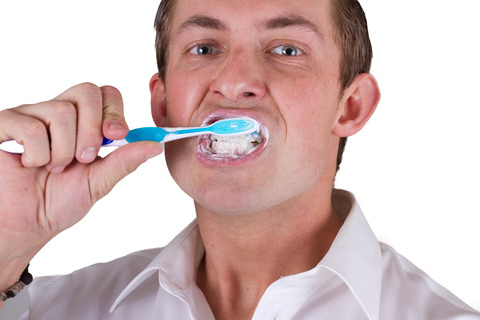Why do wisdom teeth need to be removed?
September 13th, 2018

Sometime around the late teens or early twenties, people’s wisdom teeth start to erupt. These are the third and final set of molars. When wisdom teeth come in properly — meaning they are correctly aligned — they offer more chewing power. Unfortunately, more often than not, wisdom teeth are misaligned, crowd other teeth, and need to be removed.
Why do we have wisdom teeth?
It is thought that we have wisdom teeth because — back in the day — we ate a diet that consisted of more rough foods, like roots, leaves, and meat, all of which required more heavy-duty chewing power.
Reasons Wisdom Teeth Need to be Removed
While there is no clear-cut rule that says every single person needs to have their wisdom teeth removed, there are certain situations where one or more wisdom teeth are causing a problem or have a strong likelihood that problems will eventually arise in the future that warrant their removal.
1. Fully Impacted Wisdom Teeth
When a wisdom tooth is “impacted”, it means that the tooth is covered by gum tissue, thereby preventing it from erupting through the gum. This often occurs when the mouth is too small to allow enough room for the tooth to emerge. Because bacteria, food, or other mouth substances can be lodged under the gum that covers the wisdom tooth, it can lead to an acute abscess, known as pericoronitis.
2. Partially Impacted Wisdom Teeth
When a wisdom tooth is partially impacted, meaning the tooth is partially emerged from the gums, it almost always is advised to be removed. Because of its location in the very back of the mouth, a partially erupted wisdom tooth is more susceptible to not only decay and cavities, but also gum disease.
3. Other Reasons to Have Wisdom Teeth Removed
If you experience any of the below dental issues or changes in your dental health, removal of your wisdom tooth (teeth) may be necessary:
- Pain at or surrounding the wisdom tooth site, including the jaw or cheek area
- Repetitive infections
- Gum disease
- Tooth decay (extensive)
- Tumors
- Cysts
- Damage to surrounding teeth
It is important to know that the decision to have a wisdom tooth removed isn’t always cut and dry. It is essential to talk to Dr. Robert Wortzel about the alignment of your wisdom teeth if they have already erupted, health of your wisdom teeth if impacted or partially impacted, and your overall dental health to determine what is best for your situation. Contact our Mountainside, NJ office to schedule an appointment today!



